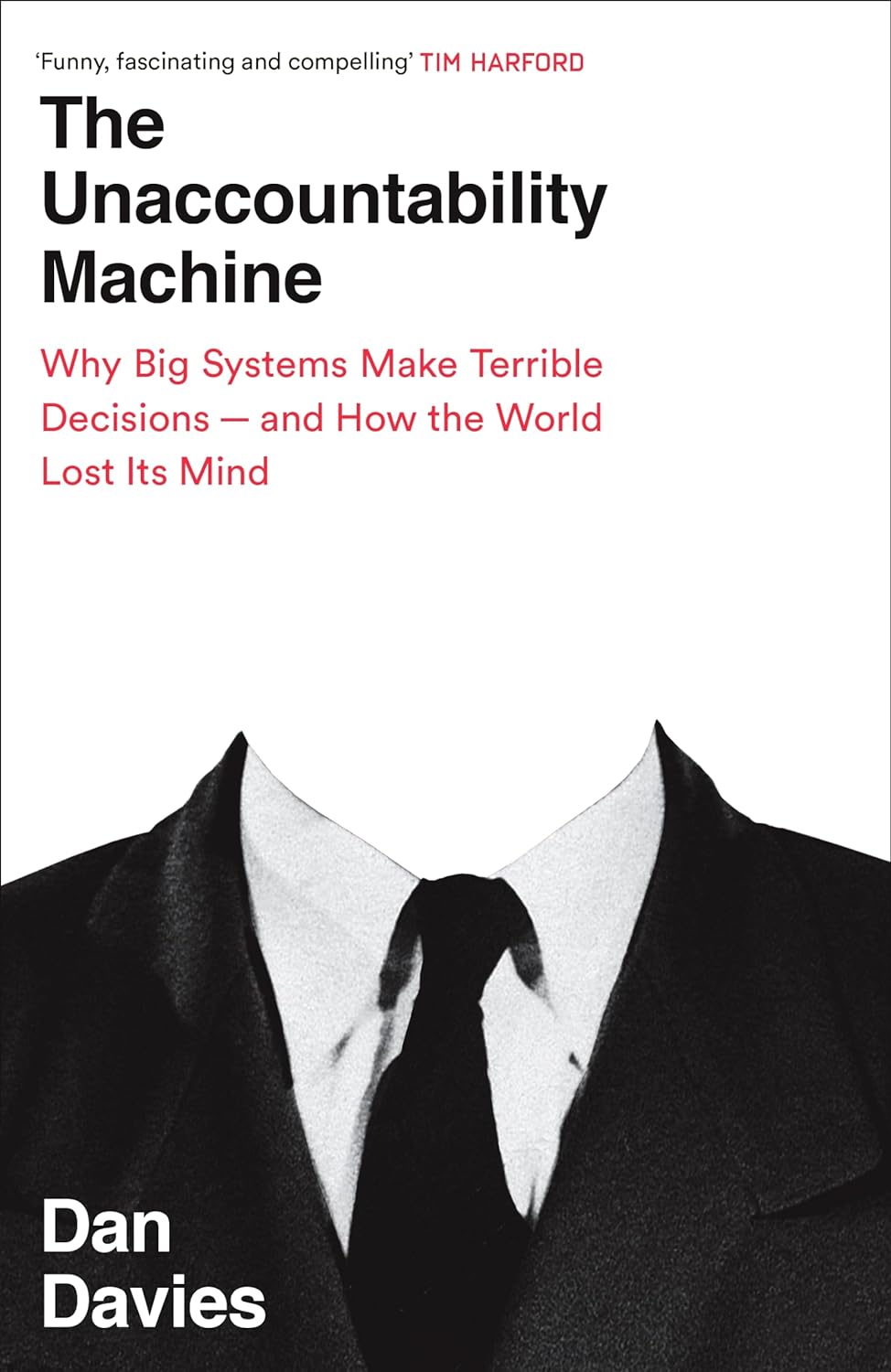Cian reviewed The Unaccountability Machine by Dan Davies
Interesting but slightly disappointing take on cybernetics.
4 stars
I expected to enjoy this more than I did, being familiar with Cybernetics from previous books and sharing many of Dan's views on management and economics.
Parts of the book are very good, particularly the way he outlines why neoliberalism/neoclassical economics fail to manage effectively, and the flaws with accounting. Other parts feel strangely unfinished, as if he had an idea and wasn't quite sure how to complete it. It's never entirely clear how he thinks cybernetics ideas can be incorporated into management, or how measurement can in practice be improved. And I found his belief in AI and aspects of management strangely naive, as was his belief that increased complexity is inevitable and we must deal with it (that maybe we need to simplify instead never really occurs to him).

